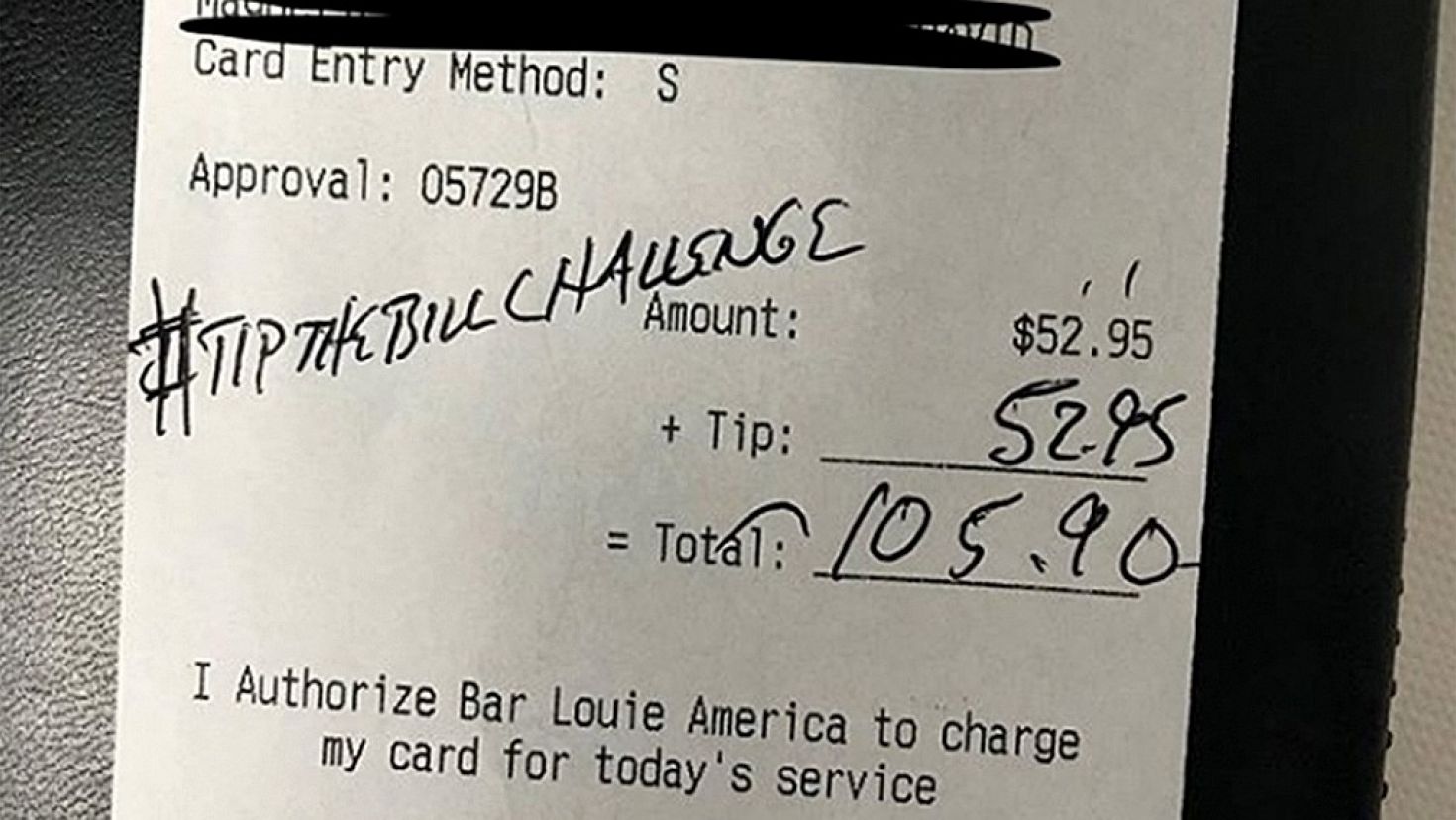Tipping is bullshit. Not the part where you give your server a little extra something to compliment them on doing a good job. That’s cool, and a nice thing to do. (If you’re reading this, and you don’t tip — Please tip. At least 20 percent. Seriously.)
No, tipping is bullshit because somewhere along the line it became compulsory. Now, instead of maybe being a way to show appreciation for good service, it’s a requirement for making sure you don’t look like a jerk. After all, doesn’t everyone know that waiters have terrible salaries?
That’s a big part of why the #tipthebill challenge is so refreshing. In case you haven’t run into it yet, the #tipthebill challenge normally looks like a picture of a receipt on a restaurant table. There’s usually nothing that remarkable about the bill, until you notice what’s written on it — the full price of the meal in the “Tips” section, a signature and sometimes a handwritten “#tipthebillchallenge.”
It’s the most recent social media challenge out there, and it’s also my personal favorite. It reclaims a little bit of tipping’s potential to be a really nice thing to do for someone in an otherwise crappy job, and it’s a sea change compared to other, older internet “challenges.”
The oldest internet challenge was probably the cinnamon challenge, which, if you’re too young to be reading this, involved just eating a straight-up spoonful of the spice on video and recording the resulting painful reaction. The first challenge to have a reason to exist beyond teenage dares was the ice bucket challenge, which raised more than a $100 million for ALS research in its first summer of existence and is still going, though maybe with less fanfare than that original summer in 2014.
The exciting thing about the #tipthebill challenge is that the charity is the actual focus of the thing. Even in the ALS ice bucket challenge, which clearly made a huge contribution and brought a lot of attention to an important cause, the actual charity was kind of an afterthought to the part where people dumped ice water on their heads and made fools of themselves.
The #tipthebill challenge, though, puts the act of giving front-and-center. The typical #tipthebill challenge picture is nothing more than a picture of the receipt with the “tip” section filled out. Unlike how the ALS challenge was fueled by the personal boost people could get from posting themselves getting doused, the #tipthebill challenge is a little more impersonal. It comes off less like a statement and more like a nice thing that anybody can do without having to do any actual preparation.
And, because of how the #tipthebill challenge works in the first place, every time somebody does that small nice thing, two heartwarming social media posts come out of it. Since servers are also on social media, the #tipthebill challenge has two sides on social media — people posting their own bills, and waiters posting about getting a tip that made their night. I’m a big fan of people expressing their thanks for nearly anonymous strangers in ways that encourage more people to do nice things.
But of course, it wouldn’t be the internet if there weren’t some controversy about what’s sure to be a short-lived gag, no matter how positive it is. A user named Kate Gribble claimed that participating in the #tipthebill challenge was basically giving employers a pass to continue paying waiters less than minimum wage, and others used similar complaints to encourage restaurant owners to unionize.
If I’m being honest, that’s usually the kind of thing I would be saying about something like this. But I have a really hard time applying that criticism to the #tipthebill challenge. After all, it doesn’t seem like anybody’s really profiting off of this except for the servers.
The bad restaurant owners who aren’t paying their employees a living wage are most likely already paying their employees the lowest possible salary they can legally get away with. Giving those employees extra tips won’t make the federal minimum wage go down. In other words, unlike what Gribble claimed, there’s no way that tipping the bill is somehow going to actually make things harder for a server.
As far as I’m concerned, this is a big win on all sides: Diners get to properly express the gratitude that tips should be useful for showing in the first place, servers get some extra, unexpected dough, and everybody (including onlookers) gets to enjoy some pleasant vibes from the deal.
Plus, there’s really nothing preventing the #tipthebill challenge from also being used to address how little money restaurant employees normally get. As a dramatic way to give extra money to servers, it’s also the perfect platform to point out why they should be getting that money in the first place.
Even when #tipthebill challengers don’t mention unions or collective bargaining in their posts, the fact that they think tipping extra is worthwhile probably means that they have some understanding of just how crappy it is to work for less than minimum wage because of the (not always true) expectation that waiters will make up the difference in tips.
What does the future hold for tipping the bill? Will it die out, like the dire Tide Pod challenge before it? Or will it last for years to come, like the ALS ice bucket challenge, and continue to improve random peoples’ days? The #tipthebill challenge is a good thing for social media, the people that use it and the random people who don’t use it but wind up effected anyway. Here’s hoping it sticks around a while.











